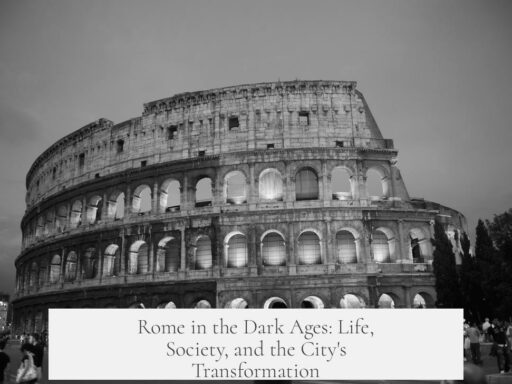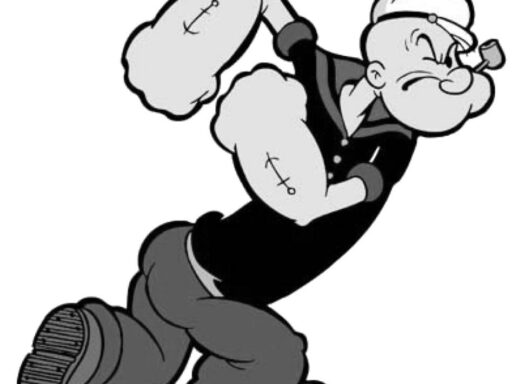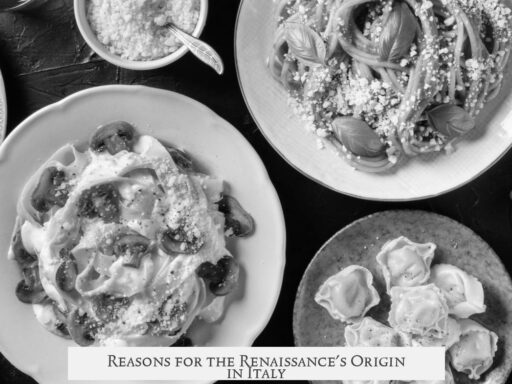Harvey Milk’s political career showed signs of growing influence, especially after his public fights against the Briggs Initiative, but there is no clear evidence that he pursued or formally planned a statewide office before his assassination. He was ambitious and raised his profile beyond San Francisco, yet several challenges stood in his way.
Milk’s rise was significant within San Francisco politics. He won a seat on the city’s Board of Supervisors, becoming one of the first openly gay elected officials in the United States. The movie Milk portrays him as quickly becoming a powerful figure. This reflects his expanding influence locally but somewhat exaggerates his immediate impact on California’s statewide political scene.
While Milk did not explicitly declare an intention to run for higher statewide office before his death, many believe he was ambitious enough to consider it. The next statewide races were not scheduled until 1982, leaving a four-year window in which he could have made decisions about advancing his political career.
Milk’s statewide profile increased significantly during his opposition to California’s Proposition 6, also known as the Briggs Initiative. This ballot measure aimed to ban gays and lesbians from working in public schools. Milk famously debated State Senator John Briggs on television multiple times, gaining widespread attention.
This exposure raised Milk’s stature nationally and statewide, earning him recognition beyond San Francisco. However, even with this higher profile, the political environment remained hostile to openly gay candidates in the early 1980s. The statewide political landscape was not yet ready to embrace an openly gay officeholder for more prominent roles.
Milk also faced personal and political obstacles that complicated any potential statewide ambitions. One notable issue was his relationships with younger men, which critics and opponents could exploit. Given the media environment, such controversies would likely have gained public attention and posed political risks in a broader electorate.
Within San Francisco, Milk had made many powerful political enemies. His confrontational style and challenges to the established Democratic establishment alienated influential figures. These included local politicians and prominent gay leaders, which limited his support base within his own community.
It is significant that San Francisco has a unique position in California politics. Success in the city often signals potential statewide viability. However, Milk’s adversarial relationships with key local figures, such as members of the Democratic Party establishment and influential gay organizations, would have complicated efforts to build statewide alliances.
Milk’s political allies and enemies list was extensive, including figures such as Art Agnos, Willie Brown, and others within San Francisco’s political scene. His approach sometimes led to fractured relations, reducing chances for coalition-building necessary for a statewide campaign.
Had Milk lived longer, there was speculation about his potential candidacy in future local elections, such as the 1987 mayoral race, where he might have sought a rematch against Art Agnos. Such a race would have further tested his political strength and influence in San Francisco.
The broader political climate in California during the early 1980s was mixed. While some prominent politicians, including Ronald Reagan, opposed the Briggs Initiative, supporting gay rights was still not broadly accepted. This limited the electoral prospects for openly gay politicians like Milk on a statewide scale.
| Aspect | Detail |
|---|---|
| Interest in Statewide Office | No explicit declarations; possible ambition but no formal plans before 1978 |
| Profile Raising Events | Opposition to Briggs Initiative; televised debates against John Briggs |
| Political Environment | Unfavorable for openly gay statewide candidates in the early 1980s |
| Local Political Standing | Strong in San Francisco but many political enemies locally |
| Challenges | Personal controversies; limited support from Democratic establishment |
In sum, the idea that Harvey Milk was rapidly climbing toward statewide political power is somewhat overstated. His political career was on a trajectory that might have led to larger ambitions. Still, his time was short, and significant obstacles remained inside and outside San Francisco.
- Milk increased statewide recognition through opposition to the Briggs Initiative.
- No clear evidence Milk sought or planned a run for statewide office before his murder.
- Political climate and personal controversies limited chances for broader support.
- Made many local political enemies, impacting alliances needed for statewide success.
- San Francisco was a strong base, but Milk’s ambitions remained largely local due to constraints.
Harvey Milk’s Political Rise: Could He Have Gone Statewide?
Before his tragic assassination by Dan White, Harvey Milk was indeed a rising political figure in California. The question remains: Did he aim beyond San Francisco’s borders? Was he positioning himself for a statewide office? And how was he viewed outside the Castro’s colorful shadows? Let’s dive into the story of Milk, the man who captured a city’s hopes and sparked interest across a state.
Harvey Milk’s political career began rather abruptly in San Francisco after he moved there in 1972. Not the hometown hero, he swiftly ran for the Board of Supervisors in 1973. His peers in the local gay community weren’t impressed right off the bat. They saw him as a carpetbagger, someone who hadn’t “set up the chairs in the hall,” a colorful way of saying he hadn’t put in the groundwork others had before launching at the spotlight.
Despite earning reasonable support in the Castro district, Milk initially failed at the polls. The election system, which alternated the top vote-getters on a citywide basis, wasn’t kind to him. This system, which he might have found somewhat ironic later, made it tough for a newcomer with a strong local but limited broader appeal to break through.
Alienation and Enemies: The San Francisco Political Scene
Milk wasn’t the kind of politician to make many friends through subtle diplomacy. He alienated almost the entire San Francisco Democratic establishment. Why? He disrupted old deals and political favors while soaring vocal on gay rights and progressive causes. Even powerful allies in the local gay community turned critical, feeling sidelined by his approach.
His growing list of political adversaries reads like a who’s who of San Francisco politics at the time: Foster, Stokes, the Toklas gay Democratic club, Burtons, Moscone, McCarthy, Willie Brown, and Agnos. Milk famously told close confidants that he intended to get even with all of them. Not your typical bipartisan player; think more of a scrappy challenger with a vendetta.
Winning the Board of Supervisors Seat in 1977
Undeterred, Milk struck gold in 1977, finally winning a seat on the Board of Supervisors, heavily backed by the Castro district vote. Yet, even with that win, there were complications. His share of the total citywide vote was around 30%, while his opponents combined had more votes. San Francisco’s lack of runoff elections served him well; without that, he probably wouldn’t have triumphed.
Once elected, Milk’s legislative record appeared modest. His only successful ordinance was related to owners cleaning up after their dogs—a practical but unglamorous win. Contrary to popular belief, he had little to do with the landmark anti-discrimination ordinance often linked to him. Instead, Supervisor Robert Gonzales introduced it the year before Milk’s big advocacy moment. Milk’s tenure was also marked by clever publicity stunts—such as posing in photos stepping into dog poop—showing a flair for media but less legislative muscle.
Milk’s Triumph Against the Briggs Initiative: Raising a Statewide Profile
Where Milk’s influence reached beyond San Francisco was during the fight against the 1978 Briggs Initiative (Proposition 6), which sought to ban gays and lesbians from working in California public schools. This fight brought Milk to TV screens across the state. His multiple debates with the initiative’s sponsor, John Briggs, were crucial and showcased his charisma and commitment.
His opposition joined high-profile figures such as then-Governor Ronald Reagan, who vocally opposed the initiative. With a statewide vote of 58-42 against the initiative, Milk’s efforts undoubtedly raised his profile both across California and nationwide. This was a defining moment that proved Milk could influence politics beyond Castro’s borders.
Ambitions Beyond San Francisco?
Was Milk eyeing higher office? While no direct evidence shows he publicly declared candidacies for statewide posts, his ambition was clear. With the next statewide races scheduled in 1982, Milk had up to four years to weigh such possibilities. Given his rising name recognition, it wouldn’t be far-fetched to imagine he was considering these opportunities.
However, the reality of 1980s California politics was harsh. Openly gay politicians faced significant barriers at the state level. Milk’s unapologetic openness made him a trailblazer but also presented an uphill battle. On top of that, Milk’s personal life—particularly his controversial relationships with younger lovers—might have posed political liabilities that the press would likely scrutinize at the statewide level.
How Was Milk Viewed Outside San Francisco?
San Francisco punches above its weight in California’s political arena. Winning here opens many doors in politics. Yet, Milk had managed to alienate many powerful locals, which complicated fundraising and building broader coalitions. Jesse Unruh’s famous quote, “Money is the mother’s milk of politics,” fits well here. Milk was brilliant at publicity but poor at political alliances and fundraising. This gap hindered any immediate leap from city politics to statewide ambitions.
Outside the Castro, Milk was seen as a polarizing figure. On one hand, his fight against the Briggs Initiative won him admirers who respected his courage and convictions. On the other hand, conservative areas and even moderate Democrats were wary or openly hostile to an openly gay politician with such a rebellious streak.
What Could Have Been? Looking Forward
The question “What if?” lingers. Had Harvey Milk lived beyond 1978, many speculate he would have tested the waters of larger political offices, perhaps even the 1987 San Francisco mayoral race. A potential face-off with Art Agnos, a politician Milk had tangled with before, would have been a match made for political drama.
Despite his short tenure, Milk’s impact inspired a new generation of LGBT politicians. His legacy showed that an openly gay politician could gain power and use it for progressive change. It also highlighted the immense obstacles faced when trying to scale those heights beyond local victories.
Lessons and Reflections
- Ambition Needs Alliance: Milk’s story reveals the importance of balancing ambition with political alliances. His many foes made climbing higher more difficult.
- Publicity Isn’t Enough: Clever stunts and public debates may raise your profile, but hard graft in legislation and coalition-building secure longevity.
- Social Context Matters: Milk’s open identity was revolutionary but also a severe challenge amid the social climate of the 1980s.
- Potential Lies Ahead: His demonstrated knack for advocacy and rallying public support shows he had the tools to aim for bigger offices had circumstances been different.
Harvey Milk’s political journey offers a complex, inspiring tale of a man pushing boundaries in tough political waters. While he made huge strides in the Castro and San Francisco, his statewide ambitions were never fully realized. But the seeds he planted continue to grow, reminding us that sometimes true power lies not just in the offices won, but in the battles fought and the hearts changed.
| Aspect | Details |
|---|---|
| Start of Political Career | Moved to SF in 1972, ran for Board of Supervisors in 1973; initially alienated some local gay leaders. |
| Political Enemies | Democratic establishment, major local politicians, and some gay organizations. |
| Board of Supervisors Win | 1977 election victory with ~30% of vote, no runoff system benefited him. |
| Legislative Record | Limited successes; main win was cleaning ordinance; only minor role in anti-discrimination laws. |
| Statewide Profile Growth | Debated John Briggs during Proposition 6 campaign, raising profile significantly state- and nationwide. |
| Interest in Statewide Office | Ambitious but no formal declaration; next state races in 1982 could have been targets. |
| Political Challenges | Social climate unfavorable for openly gay statewide candidacy; personal life controversies possible liabilities. |
| Perception Outside SF | Polarizing figure; respected by some statewide advocates; distrusted or opposed by many conservatives and political insiders. |
Milk’s story makes one wonder: Would the challenges of the 1980s have crushed his state ambitions, or would his bold charisma have overcome them? History answers with silence—but the question still sparks discussion today.


